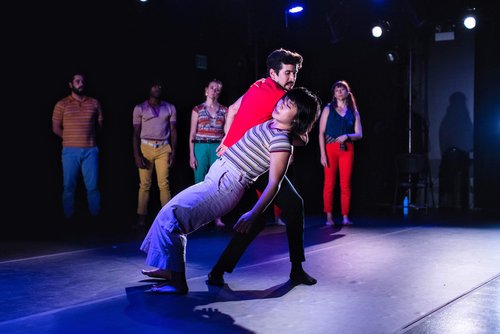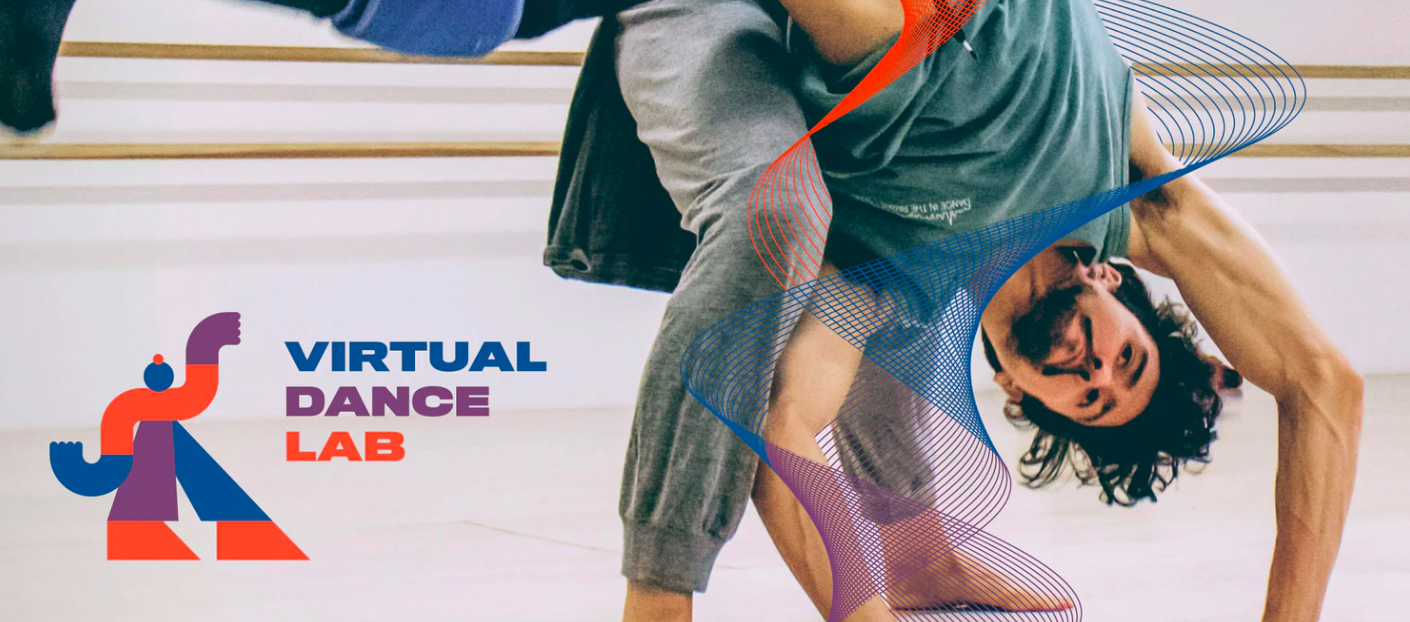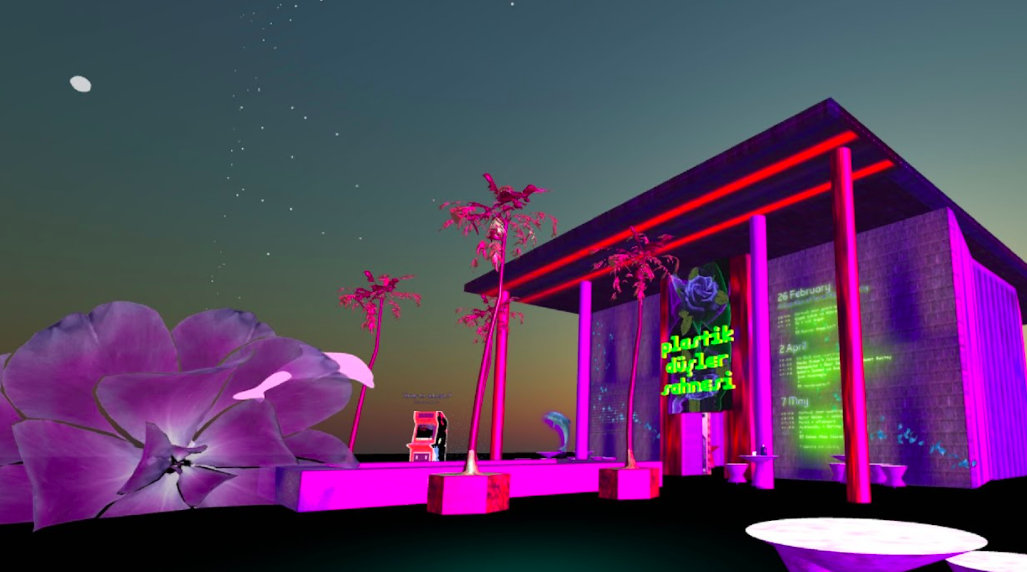Reaching across geographies through virtual classes and performances
Founded in 2000 by choreographer Julia Rhoads, Lucky Plush creates and tours hybrid dance-theater productions that blend humor and poignancy. Before the pandemic, the company already had a long history of multimedia experimentation: incorporating live video and Twitter feeds into performance, using large-scale projection mapping, and exploring themes of sampling and ownership in a digital age.
When COVID-19 brought nationwide shutdowns, Lucky Plush partnered with the University of Chicago to create the Virtual Dance Lab (VDL) to both serve dance students and employ dance artists. Launched in spring 2020, VDL offered more than 25 online classes per week across a range of dance and movement techniques. In its first year, the platform received more than 6,500 registrations from participants in 22 countries. These participants included university students and seasoned dancers, as well as a wave of students with no prior dance experience. For students newer to dance who may be less comfortable entering dance studios or face barriers to participation, the platform opened up an opportunity to explore movement with less intimidation and with the option to turn the camera off. As dance studios have reopened, VDL has continued with a scaled-down series of weekly live classes, as well as a library of past classes available on-demand.
In June 2021, Lucky Plush used the platform Gather.Town to organize the festival The Map of Now, virtually hosted by four venues spread across Chicago. Lucky Plush connected with Dragon Productions Theatre Company to build out a digital map of the city. Audience members used avatars to traverse the map, visit virtual performances, connect with each other, and pop into games dotted along the route. In addition to providing a platform for local performing artists, the festival knitted together disparate parts of the city, working to establish a virtual tool that can be used to bridge Chicago’s social, racial, and physical divides. Now in-place, the map, designed to cater to both in-person and virtual audiences, can be repurposed for future events.
Supporting company dancers has been a core value throughout the pandemic. A planned turnover in one full-time staff position early on allowed Lucky Plush to reassign responsibilities to part-time dance artists, providing added income for independent creatives facing a decline in outside employment. As the pandemic enters a third year, following two years of increased workloads and burnout for many small to mid-sized companies, Lucky Plush has launched microgrants for embodied research. This funding provides company dance artists with support to explore areas of interest—a pause for creative refueling that may inform and inspire future company projects.
Contemplating the long-term ripple effects of pandemic shutdowns, Rhoads observes that many of her university students are leaning into opportunities to create dance with the camera. She notes that their facility with technology, coupled with audience habits of streaming arts and culture content, could inform dance for years to come. She underscores that “the democratization of form is exciting,” while also wondering about potential consequences, raising the question, “What is the future of live work?”









